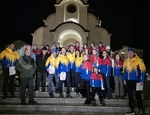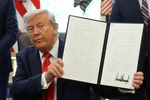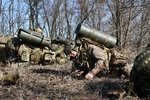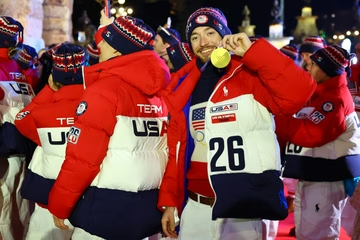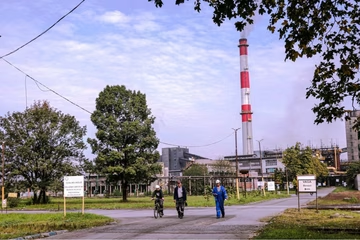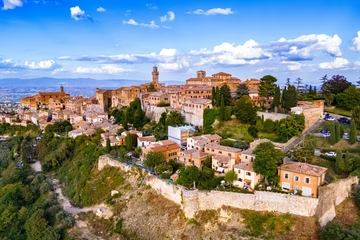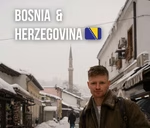
Bosnia's Presidency members mentioned the possibility of meeting with the EU Enlargement Commissioner in Brussels in an effort to overcome the deadlock over forming Bosnia's government but all three questioned whether such a meeting would be fruitful.
According to the Bosniak member of Bosnia’s tripartite Presidency, Sefik Dzaferovic, his Croat colleague, Zeljko Komsic, recently spoke to European Commissioner for European Neighbourhood Policy and Enlargement Negotiations Johannes Hahn about how to overcome the political crisis in the country. He said Hahn and Komsic mentioned a possibility for the three Presidency members to meet with Hahn and discuss the issue in Brussels.
Bosnia has not formed a government - officially called the Council of Ministers - since the October 2018 election because the Bosniak and Croat members of the tripartite Presidency refuse to vote for the new prime minister.
The new head of government is supposed to come from the main Bosnian Serb party which opposes the country’s path toward NATO membership and announced it would not allow the next step in this direction to be made.
The next step would be sending the Annual National Programme (ANP) to the alliance and the Bosniak and Croat Presidency members insist on it.
Bosnian Serb leadership previously agreed to Bosnia’s NATO membership and signed off on the country fulfilling its obligations, including sending the ANP to Brussels. Now, the same party vehemently opposes any activities that may bring the country closer to NATO.
The leaders of the three parties which won the election signed an Agreement containing principles for forming the government in an effort to overcome the stalemate, but the main issue, whether Bosnia will send the ANP, was never clarified.
For the past month, the leaders of the main Bosniak and Serb political parties gave completely different interpretations on what it says about the ANP in statements to media.
The deadline stated in the agreement to form the government expired on Thursday, and no progress was made.
In a Friday statement to media, Dzaferovic thanked the EU administration and Commissioner Hahn for his “will and wish to help Bosnia and Herzegovina get out of this situation.”
He said that he and his Croat colleague share the same opinion and that “the problem does not lie with us, but it is necessary to respect the Presidency decisions and submit the ANP so that the government is formed.”
He also said that Komsic told Hahn that Dodik “openly says he does not want to respect the law on defence, a decision by the Presidency.”
Komsic told Hahn he should first talk to Dodik and figure out whether there is a possibility for bringing the opposing stances closer at all, and then meet in Brussels, Dzaferovic said.
Dodik also commented on the invitation, saying he it is willing to discuss the issue but that a situation in which “it is imposed who needs to accept what beforehand” is impossible.
He said that the Council of Ministers must be formed before anything else.
“I have nothing against submitting a document, whatever they want to call it, to the Council of Ministers to decide on, but for someone to say how that Council should decide beforehand, that is a different thing and impossible,” Dodik said.
He stressed that his party was never opposed to cooperation with NATO, but does not want any steps toward membership taken.
“We have a certain kind of cooperation, we understand that that large-scale military integration is and we are prepared to cooperate (with NATO) at the same level Serbia is cooperating with it on that issue,” Dodik told reporters.
“Predicting membership is absolutely something that is being imposed,” he said.
Kakvo je tvoje mišljenje o ovome?
Učestvuj u diskusiji ili pročitaj komentare





 Srbija
Srbija
 Hrvatska
Hrvatska
 Slovenija
Slovenija























